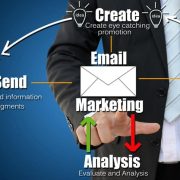There is no perfect framework for team structures when it comes to organizational structure. Why? Each company is unique. The geographical location of large companies can be different, as are the business units, supporting functions, and other features. Others have decentralized structures, while others have centralized ones. It all impacts the way you create and staff your team.
I have seen similarities between the roles necessary for the success of digital marketing in my experience leading digital teams within brands and working with global companies across industries. In this article, you will learn about some of the most important ones to consider when forming your team. Please note that the list below is incomplete.
The most successful teams that I have seen also do two things
Be creative regarding roles: Leading brands are more likely to create hybrid or new parts as the digital world evolves. To innovate effectively, they know there are better ways than rigid organizational structures. Innovation is often about trying something new or creating roles in the industry that no one else has done. They don’t hesitate to try new strategies or develop talent internally.
Collaborate throughout the organization. The best companies do not just create teams. Digital has become a part of the DNA of companies across all functions and roles. Digital groups that are most successful work well with other departments, including PR, Brand, IT, HR, and others. Top leaders understand that for their digital strategy to succeed, their teams must influence other executives and work with different functional groups within the enterprise.
Let’s consider some of the most important roles when building your digital marketing team.
Digital or Social Media Strategist
In a senior position, a strategist can be a person who focuses on social media or digital in general.
Create a global social media and digital strategy that can be adopted locally and internationally. Integrating digital into a larger strategic perspective from the beginning is crucial rather than being treated as a second-class citizen.
Audit and clean up the brand’s social media presence. It is essential to have a consistent approach to how your brand is represented on all social networks, both locally and internationally. A social networking strategy must be developed.
Work with key stakeholders to align the team’s plans with those of others.
Working with executives to educate them about the role of digital in driving business or to advise them on their personal digital and social presence.
Report on crucial campaign success and the contribution of digital to the bottom line.
Led the design and implementation of digital training for the entire organization. This is different from a job that should be given to someone junior. No matter how advanced the company is digital, it is essential to educate your staff to be taken seriously.
Create and distribute POV summaries about the changes and trends in the digital world and their implications for the organization.
Create blueprints and playbooks to ensure successful campaign execution.
Create a strategy, approach, and plan for crisis management.
Community Manager
It is essential to have a community manager, as they are the face of your company on social media and the first line of defense. I recommend hiring a senior employee for this role, not an intern. This person will interact with customers daily and needs the experience and stamina necessary to do so professionally.
Community managers must be familiar with the brand, tone, message, and values. They must balance the company’s and target community’s needs and wants. Let’s be honest; they often don’t match up. The company wants to promote its product while the district seeks entertaining and value-added content. The community manager must be familiar with each network and the latest features the company can utilize.
The right person should also work well with the content strategist to determine which content performs best and what media types the community prefers to see.
Content Strategist
A content strategist creates an impactful content strategy and collaborates with branding teams and agencies to produce compelling digital content in various formats and channels. They also partner with community managers to distribute content and create a feedback loop for the community to see which content is performing best.
Data Scientist or Business Intelligence Analyst
A data scientist or BI analyst will look at the impact of digital functions on the business as a whole across all team members. They create reporting dashboards and consolidate data. This person could also be in charge of the “listening” function, using social listening tools, gathering intelligence to understand what consumers say about a brand or its products, and monitoring any social media crises.
The person in this role is also responsible for combining data from different sources and turning them into tangible business insights. Sometimes, a supporting agency is needed to assist with the process as it may require multiple tools and take more time than one position can provide.
Paid Media Specialist
Some people say that organic exposure is not possible anymore. Most brands must promote content to get noticed due to the constantly changing algorithm on social networks. This role can be approached in two different ways. The first is to work with someone in the media team.
You may need to hire someone to handle the paid media for the content created by the content manager and distributed by the community manager to be more visible.




















Comments